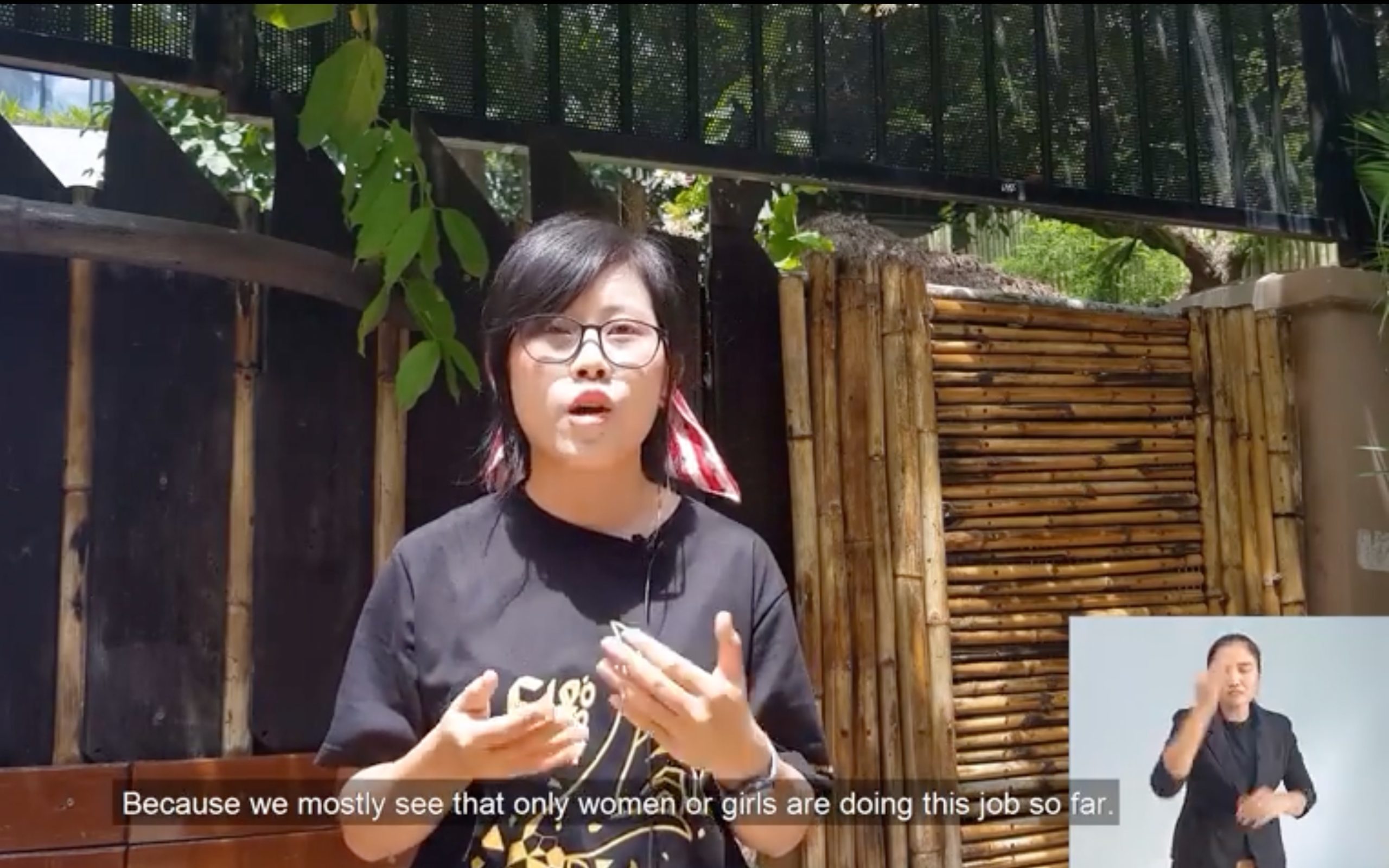Parents forcing their gay daughter to marry a man. Gender expectations that keep women at home for hours each day to take care of chores. Pressures that prevent female students from pursuing the sciences. The safety of migrant women. Sexual harassment. Victim-blaming.
A group of young Cambodian women and diversity movements is highlighting a wide range of gender violence and equality issues over a 16-day campaign using surveys and social media storytelling.
The 16-day drive, which starts Thursday, is part of the annual international campaign that spans from the International Day for the Elimination of Violence Against Women through to Human Rights Day on December 10.
Among the participants is Loveisdiversity, an LGBTIQ group founded in 2018. Co-founder Kuy Thida, who also works as a consultant for U.N. Women and other organizations, said the group will post video content over the 16 days highlighting mental, physical, sexual, and financial violence, before hosting an online panel discussion and lakhon khmer dance theater show on December 12.
“We want to raise our voices and have the LGBT community included. And we want to show people that all these problems are overlooked in society. That’s our main purpose,” Thida said.
“Much of the violence against the LGBT community happens frequently, but people don’t think it’s violence. For example, when a parent forces their gay daughter to marry someone from the opposite gender, this is violence that society thinks is normal.”
Thida, 30, who began his activism after coming out as transgender in 2016, said he used to dress as a man at university but would revert to dressing as a woman whenever he went home.
It took a heavy mental toll, he said. “I was scared about coming out to my parents that they wouldn’t talk to me anymore, and that my friends wouldn’t talk to me either. That was pressure for me. I couldn’t be myself.”
When he came out, his parents asked him to change as a favor to them. “They said they worked so hard to raise me. That was heavy for me.”
He said that for many others, parents often stop supporting their studies once they come out.
Gender equality group Breakthrough, another participant in the 16-day campaign, is posting a series of “vox pop” videos showcasing ordinary people’s views on five themes: School dropouts among girls; women in the sciences; the safety of women migrant workers; unpaid housework chores; and sexual harassment and victim-blaming.
Van Chan Kanha, 35, one of the group’s co-founders, said it was noticeable through their surveys that many people still did not have a good understanding of sexual harassment.
“The vox pop aims to show the root cause of sexual harassment against women, for Cambodians to reflect on how society puts pressure on women’s bodies,” said Chan Kanha, who is also a program officer at NGO Cedaw, an NGO that monitors the Convention on the Elimination of All Forms of Discrimination Against Women..
Women are blamed for wearing revealing clothes, and many keep silent about harassment. This makes some people think touching is OK.
“We don’t see women react and say you shouldn’t do this again,” she said. A campaign video will explain harassment and suggest how women can respond.
“We encourage all women to speak out about what they have experienced and stand up that they are the victim,” Chan Kanha said, hoping for an end to victim-blaming.
One of Breakthrough’s videos, on women’s unpaid household labor, highlights ILO statistics that Cambodian women spend an average of three hours and eight minutes on household chores every day, while men spend just 18 minutes — the lowest out of all countries surveyed.
“This type of work does not belong to any gender,” the video says.
Sa So Phanich, 21, another co-founder of the group, which was started in December last year, said her goal was to raise awareness around gender inequalities in the sciences.
Especially with engineering, parents often discourage their daughters from pursuing the field, So Phanich said.
“Most of the students are male, so women might think they will have difficulty communicating with them or have a hard time finding a job if they study it,” she said.
There were more obstacles for women than men, and raising awareness was important, she said. Many female students are interested in the field, and she hoped that ultimately parents would allow daughters to confidently make decisions for themselves.
“The video might impact some parents to rethink: should they focus on what their daughter likes to do, or on simple work that conforms to a gender role? That a girl should study this major and a boy should study that major,” Phanich said.
Thida, the LGBT activist, said he hoped the 16-day campaign would get more people talking about gender issues and violence.
“When a trans woman is beaten, the police don’t care. People think this is normal and fun for them,” Thida said. “All those forms are a type of violence. It is a big deal. It should be talked about in general. And it is also against the law.”
“We want to get more people’s attention.”













